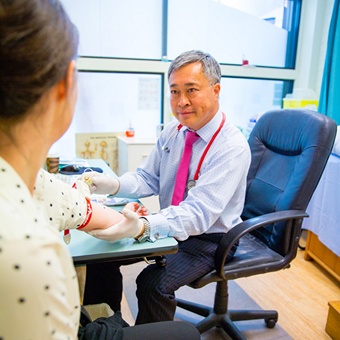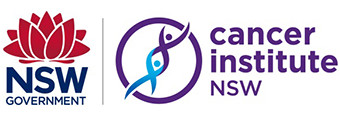GP News – May ’16
Contents
- Expressions of Interest for GPs
- Health professionals working in private sector can now exchange information under Ch 16A of the Children and Young Persons (Care and Protection) Act 1998
- Documenting the antenatal pertussis vaccination in patient records
- New Colorectal Clinic for Royal North Shore Hospital Ambulatory Care
- Living Well with Chronic Illness – National Palliative Care Week (22-28 May)
- GPs can be the key to increasing bowel screening
- Free legal assistance for patients

Expressions of Interest for GPs
SNHN is now calling for Expressions of Interest from local GPs/Practices for the following opportunities:
- Quality Improvement Coach program for up to eight General Practices: CLICK HERE
- General Practice Representatives for various areas: CLICK HERE
- Lead health talks for an Adult Migrant English Program at the North Sydney Institute (NSi) TAFE English as Second Language (ESL): CLICK HERE

Health professionals working in private sector can now exchange information under Ch 16A of the Children and Young Persons (Care and Protection) Act 1998.
Important new legislative changes that came into effect on 6 May 2016 mean that private health professionals – doctors, nurses, midwives, psychologists, occupational therapists and speech therapists – are now able to lawfully exchange information about the safety, welfare and wellbeing of children and young people under Chapter 16A of the Children and Young Persons (Care and Protection) Act 1998.
Before the changes, only health professionals working in the public health system or in a private health organisation could exchange information under Chapter 16A. The law has been changed to allow health professionals working in private practice to also exchange information under Chapter 16A.
Additionally, following a successful trial involving general practitioners in limited regions of NSW which resulted in positive outcomes for children and families, private doctors and general practice nurses can now make reports to the NSW Health Child Wellbeing Unit rather than to the Child Protection Helpline.
Work is underway to amend relevant policy and procedure documents to reflect these changes, including the Mandatory Reporter Guide and the Child Protection Interagency Guidelines.

Documenting the antenatal pertussis vaccination in patient records.
The NSW Health antenatal vaccination program, which commenced in 2015, recommends a single dose of pertussis containing vaccine during the 3rd trimester of each pregnancy (preferably at 28 – 32 weeks). GPs are reminded, after providing the vaccination that they record the details on the patient’s yellow pregnancy card.

New Colorectal Clinic for Royal North Shore Hospital Ambulatory Care
A dedicated colorectal outpatient clinic, led by A/Prof Alexander Engel, has started at Royal North Shore Hospital. Both public and private patients will be accepted. The focus of the clinic will be on patients with a colorectal surgical problem ranging from proctology to colorectal cancer screening and management. Primary referrals, second opinions and advice on early and late complications after surgery are welcome. The clinic will also have a strong focus on research and education of senior registrars and colorectal fellows.
Referrals to A/Prof Alexander Engel can be faxed to 9463 1065.
For further enquiries call the Ambulatory Care Centre on 9463 1420 and ask for the colorectal clinic.

Living Well with Chronic Illness – National Palliative Care Week (22-28 May)
National Palliative Care Week (22-28 May) this year focusses on ‘Living Well with Chronic Illness’ and provides the perfect opportunity for friends and family to encourage people with life-limiting conditions to make their end-of-life wishes known.
Palliative Care Australia (PCA) will highlight how palliative care can help people with chronic illnesses to live well. Four out of five deaths in Australia are caused by chronic illness, but there is a misconception that only cancer patients can access palliative care.
People with chronic illnesses often have more than one chronic illness which affects their health in different ways. Early access to palliative care can help them have a better quality of life.
The call to action in 2016 is to get people to talk about their end-of-life care wishes before it is too late. Palliative Care Australia’s new website www.dyingtotalk.org.au provides a Discussion Starter that can be used by anyone to help talk to their loved ones and health professionals about their end-of-life care wishes.
CLICK HERE for the National Palliative Care Week 2016 Events Calendar.
CLICK HERE for the new ‘dying to talk’ website.

GPs can be the key to increasing bowel screening
GPs can play a vital role in the early detection of bowel cancer by encouraging their patients to participate in the National Bowel Cancer Screening Program.
The Cancer Institute NSW, as part of a new campaign encouraging participation in the screening program, is calling on GPs to discuss bowel cancer screening with their patients.
The campaign, ‘A Gift for Living,’ will air throughout May and June, and encourage people aged 50-74 in NSW to participate in bowel cancer screening.
If participation rates reach 60% nationwide, 90,000 lives could be saved over the next forty years1 – currently, NSW has the second lowest rate in Australia at 33%.
Dr Ross Walker is a practicing doctor with a medical practice in Lindfield, and a health advocate appearing on Sydney radio and national TV. Dr Walker says a recommendation from a health professional to screen for bowel cancer can play a key role in encouraging people to complete and return their screening kit.
“A general practitioner’s encouragement for their patients to participate in the bowel cancer screening program has been shown to be a very powerful incentive,” he says.
Bowel cancer is the second biggest cancer killer in Australia, with around 80 Australians dying every week.
To read more CLICK HERE.

Free legal assistance for patients
General Practitioners and other health providers see the health impacts of legal problems in many people presenting in their practice and clinics every day. Legal problems and health issues are interconnected. Either problem could be the cause or the result of the other.
Some of the most common legal problems that people generally encounter during their lives include:
- Consumer issues;
- Employment issues – unfair dismissal, discrimination and disputes about entitlements
- Debt and mortgage problems; and
- Problems sorting out property and parenting arrangements after relationship breakdown.
Similarly, some people have health problems that have resulted in legal issues. These health issues may have arisen from workplace injury or due to negligence of another person or organisation; such as an injury caused by tripping over on a footpath.
You can refer your patients to LawAccess NSW to ensure that they talk to the right people to get legal help.
LawAccess NSW was established as the first point of contact for all people in NSW who have legal problems. It is a free government telephone and online service. Over the telephone, people who have a legal problem in NSW can get legal information, referrals and, in some cases, advice. Through the online service, people can access easy to read legal resources and detailed guides for representing themselves in a court or tribunal.
By referring patients to LawAccess NSW you will be helping to resolve your patient’s legal problem.
Contact LawAccess NSW
Telephone: 1300 888 529 between 9am and 5pm, Monday to Friday (excluding public holidays).
If a patient is deaf, hard of hearing or has a speech impairment, they can contact the National Relay Service (NRS) for assistance from an interpreter:
- Voice/TTY: 133 677
- Speak and Listen 1300 555 727
- Internet Relay: www.relayservice.gov.au
- Video Relay: choose the available NRS video relay contact on Skype and ask for LawAccess NSW on 1300 888 529.
A patient requiring an interpreter in a language other than English, can call the Translating and Interpreting Service (TIS) first on 131 450 and ask for LawAccess NSW.
Website: www.lawaccess.nsw.gov.au
[contentblock id=1 img=gcb.png]
